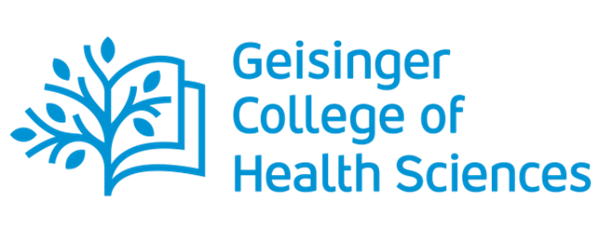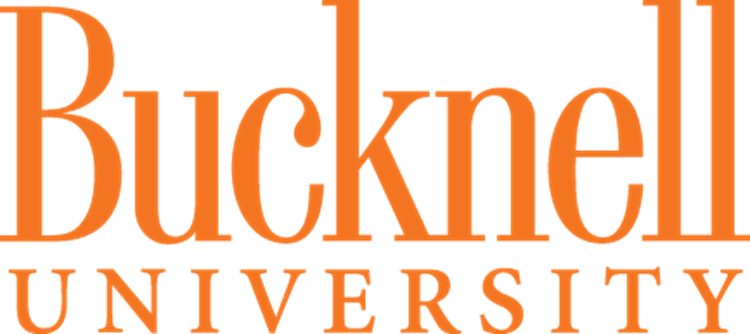Tuesday, July 22, 2025
Henry Hood Center for Health Research, Ground Floor || Geisinger Medical Center, Danville
![]() @GeisingerRsrch #SVURS2025
@GeisingerRsrch #SVURS2025
About the symposium
Welcome to the 14th Susquehanna Valley Undergraduate Research Symposium, a venue open to all student researchers in the region, including but not limited to Geisinger, Bucknell University, Commonwealth University of Pennsylvania and Susquehanna University. The symposium provides a valuable opportunity for undergraduate and graduate students in central Pennsylvania to showcase their research activities, learn about other methods and disciplines and present in a professional setting. This year’s symposium is sponsored by Geisinger.Location
Henry Hood Center for Health Research
Geisinger Medical Center
658 Center St.
Danville, PA 17821
Key dates
- June 2, 2025: Registration opens
- June 30, 2025: Registration closes
- July 22, 2025: SVUR Symposium
Parking
Parking information for the Geisinger Medical Center campus can be found here.
Registration
Registration opens June 2 and closes June 30 and is required for all attendees. Register here.
Registration of students implies acceptance to present at the symposium. An abstract is not required during the registration process.
Schedule at a glance
Break from 2:30-2:45 p.m.
| Activity | Time | Location |
| Arrival and setup | 10 a.m. | Lobby, Ground Floor |
| Poster session I | 10:30 a.m. – noon | Ground Floor |
| Lunch | Noon – 1 p.m. | Ground Floor |
| Poster session II | 1 – 2:30 p.m. | Ground Floor |
| Keynote speakers | 2:45 p.m. | Auditorium, Ground Floor |
| Awards and closing remarks | 3:45 p.m. | Auditorium, Ground Floor |
Keynote speakers

Learner Keynote: Duncan Dobbins, PharmD, MHI
Clinical Pharmacist, Geisinger
“Failing Forward: Research, Resilience and Redefining Purpose”
Duncan Dobbins, PharmD, MHI, is a fourth-generation pharmacist and informatician. He earned his Doctor of Pharmacy and Bachelor of Science in Pharmacy Foundations from Duquesne University in 2023, where he conducted biopharmaceutics research. He completed a two-year postdoctoral fellowship in health system science with Geisinger’s Center for Pharmacy Innovation and Outcomes (CPIO). His work focused on research methodologies, health service evaluation and optimization, system redesign and AI-driven solutions for the pharmacy enterprise. During his time with the CPIO, he graduated with a Master of Health Informatics from Wake Forest University, merging his pharmacy expertise with data analytics and information technology.

Headline Keynote: Brian Piper, PhD, MS
Associate Professor, Geisinger College of Health Sciences and the Center for Pharmacy Innovation and Outcomes
“Conflicts of Interest in Medicine”
Brian Piper, PhD, MS, is an associate professor at Geisinger College of Health Sciences and the Center for Pharmacy Innovation and Outcomes. His teaching includes bioethics, neuroscience, and epidemiology. He also serves on the editorial boards of Frontiers of Psychiatry, Pharmacy, and the Guthrie Clinic Journal of Medical Science. Previously, he taught at Husson University School of Pharmacy and Bowdoin College. He completed a master’s in experimental psychology at Northern Michigan University, a doctorate in behavioral neuroscience at the University of Massachusetts, Amherst, and postdoctoral fellowships at the University of Oregon and Oregon Health and Science University. He maintains active programs of research in quantitative bioethics and pharmacoepidemiology. He has published one book and more than 100 articles in leading journals including the American Journal of Preventative Medicine, Neuropsychopharmacology, and the British Medical Journal. His research has been covered by the Washington Post and the New York Times.
This publication will be the highlight of his talk: Undisclosed financial conflicts of interest in DSM-5-TR: cross sectional analysis - PubMed
Poster guidelines
As a poster presenter, you are expected to be available for discussion during your assigned poster session on the day of the event. Print your poster and bring it with you. Posters must be 3’ tall by 2’ wide due to poster board space limitations. Your poster session and poster number will be shared with you via email ahead of the symposium. Push pins will be provided.
While there is no required formatting for the posters, the following structure is recommended:
- Title
- Authors
- Background
- Methods
- Results
- Conclusion
- References, when appropriate
- Acknowledgements, when appropriate
FAQs
1) Is there a cost to attend the symposium?
The SVUR Symposium provides a free venue for presentations. We do not allocate funds for expenses related to poster printing or other ancillary costs. You and your mentor should agree that you are permitted to present this work. Seek your mentor’s advice and approval on poster printing.
2) When are posters due?
Printed posters should be brought to the symposium on July 22. Early delivery of poster PDFs or voiceovers is not required or accepted.
3) Are voiceovers required for the event?
No. Voiceovers are not required or accepted as they have been in the past.
4) Who is required to register for the symposium?
All attendees are required to register for the symposium, including students, faculty mentors and general attendees. Registration for the symposium is open to the public and begins on June 2 and closes on June 30. Register here.
5) Can students present more than one poster?
No. We ask that only one poster be presented by each student, but posters can have multiple presenters.
Awards
Only posters submitted by undergraduate students will be eligible for an award. Awards will be announced at the event.Each session will have a “best poster” award.
Contact
Email svursymposium@geisinger.edu with questions, comments or concerns.
2024 award winners
Poster category: Arts & Humanities, Social Sciences
- Cues to Routine Reliance Decrease Alibi Believability, Michael Jacobus, Bucknell University
- How the Town Views the Gown: Understanding Lewisburg Residents' Perspective on the University, Dora Kreitzer, Bucknell University
- Issei: Museums, Memory and Migration, Isabella (Ella) Uriu, Bucknell University
- Trust in Parent-Child Relationships in Romania, Matthew Bucaloiu, Bucknell University
Poster category: Engineering, Computer Science and Natural Sciences
- L-function Recipe Requires Raw Ingredients, Skyler Le, Bucknell University
- The Development and Implementation of a Mini Drop Tower for Energy Dissipating Tapered Spirals, Chiara Vessicchio, Bucknell University
- Experimental Exploration of Increasing the Foldability of the Miura-Ori Fold, Sasha Munyeki, Bucknell University
Poster category: Life Sciences
- Investigating Unlighted Firefly Species Lucidota Atra Using Behavioral Assays, Judith Ramos, Bucknell University
- Modulation of Guest Structure to Improve Host-Guest Binding Interactions, Gavin Kint, Bucknell University
- The Genomic Evolution of Firefly Odorant Receptors, Susan Deering, Bucknell University
Poster category: Studies of Health and Wellness Across Disciplines
- Comparison of Thalamic Atlases in Defining Motor Nuclei for Deep Brain Stimulation Targeting in Essential Tremor, Mathew Zilberman, Bucknell University
- Engineering Metallopeptides for Cellular Internalization, Isabella Diaz, Bucknell University
- The Effects of Low-Frequency Low-Intensity Ultrasound on Endothelial Cell 3D Culture Protein Secretion, Tobey Kim. Bucknell University
- What, When, and Why?: A Population Analysis of MyCode Participants that Received Prior Genetic Testing, Marin Catino, Geisinger





